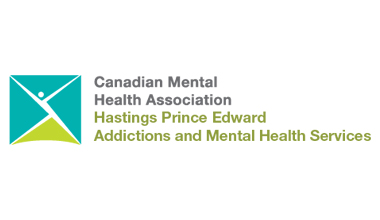
Suicide Prevention
If you or someone you know are in a crisis and need help right now, please call 911.
If you are in need of resources or help, call 310-OPEN (6736). It is a free, confidential service to get information, support and referral to all mental health and addictions services in Hastings & Prince Edward Counties in Ontario, Canada.
Suicide is a troubling topic that most of us would rather not deal with, but suicide is a reality, and it is more common than we would like to think.
- More than 3,500 Canadians kill themselves each year.
- 1 in every 25 Canadians attempts suicide during his or her lifetime.
- A 1994 United Nations study over a three-year period found Canada's suicide rate for children and youth under 21 to be among the highest in the world.
Many times suicidal actions are a desperate "cry for help" and many suicides can be prevented. By paying attention to warning signs and talking about the "unthinkable," you may be able to prevent a death.
Why do people take their own life?
Most people who attempt suicide are ambivalent about taking their own life, however circumstances make them feel that life is unbearable. Suicide seems like the only way to deal with their problems because they have an extreme sense of hopelessness, helplessness and depression. Some of the factors that may lead a person to attempt suicide are:
- feelings of isolation. having a serious physical illness
- having severe mental illness. experiencing a major loss (death of a loved one, unemployment or divorce)
- ddiction to drugs, alcohol or gambling. experiencing major changes in life
- prolonged depression with harmful or negative thought patterns
- post-partum depression. experience of childhood or adult abuse or trauma
- living in a violent relationship
What are the warning signs?
Some people who kill themselves do not give any warning at all. However, many offer clues or statements to those around them. Individuals expressing suicidal intentions should always be taken seriously. Some of the signs to look out for are:
- direct statements about suicide such as "I want to die," or indirect threats such as "You would be better off without me"
- personality changes or withdrawn behaviour
- hoarding medication
- giving away prized possessions
- lack of interest in future plans
- isolation from friends and colleagues
- depression
- sudden decrease in levels of hygiene
Some signals that indicate imminent danger for a person expressing a desire to suicide are if they are isolated, have attempted suicide in the past, have a plan for how they will kill themselves and have the means to do so (weapons, drugs).
What can you do to help prevent a suicide?
Suicide is a taboo subject yet talking about it openly is helpful. A person contemplating suicide needs the support of people who listen and care. If you are concerned that someone you know may be suicidal, take action.
- Find a place to talk where the person feels comfortable, they need to know that you respect their need for privacy.
- Encourage the individual to express their feelings freely – the single most important thing you can do is to listen attentively without judgment.
- Ask them whether they have considered suicide – bringing up the subject will not cause them to act upon it.
- When someone tells you they are going to suicide it can be scary for both you and them. Stay calm, be honest and tell them about your concern for them – they need to know that someone cares.
- Ask them to share their story with you and whether there is anything you can do.
- Talk about the resources that can give them support – family, friends, clergy, counselling or psychiatric treatment.
- Let them know that you are there to support them, but also know your limits – you don't have to do it alone. Taking care of yourself while helping a friend through a hard time is important.
- Download Be Safe to help you make decisions in a crisis.
What can you do if you're feeling suicidal?
It may seem like there is no light at the end of the tunnel, and asking others for help and discussing your feelings can seem like a daunting task. If you reach out however, you will discover that there is help and that you are not alone. Many people have felt suicidal when facing difficult times and have survived, returning to normal lives. If you have these feelings you should:
- talk to a trusted friend or family member about your feelings.
- call a crisis telephone support line.
- talk to your family physician; they can arrange for counselling and/or prescribe medication to help you feel better.
- get involved in a self-help group and talk to people who have "been there".
- understand that you are not in the best shape to make major decisions, so just focus on the here and now.
More information...
Remember you are not alone. Reaching out for help and knowing where to go for positive support can keep you and others safe. You may want to contact your family physician, the CMHA, Ontario Division toll free at 1-800-875-6213, your spiritual advisor, the local crisis intervention centre or the Mood Disorders Association of Ontario at 416-486-8046.
Local Crisis Service Info
International Association for Suicide Prevention
Mood Disorders Association of Ontario
Mood Disorders Association of Canada
Canadian Association for Suicide Prevention
Sources
Info on this page has been provided by the Canadian Mental Health Association, Ontario
Copyright (c) 2004 by the Canadian Mental Health Association, Ontario. This Fact Sheet may not be reproduced without written authorization from CMHA Ontario.
Original article by: mindyourmind
- Author: mindyourmind
- Article Source: mindyourmind








